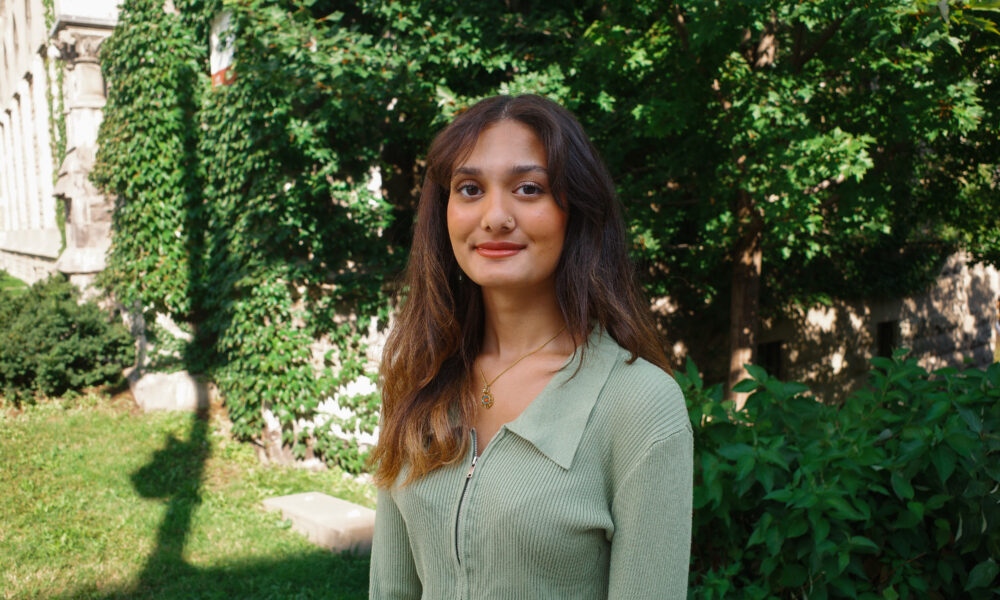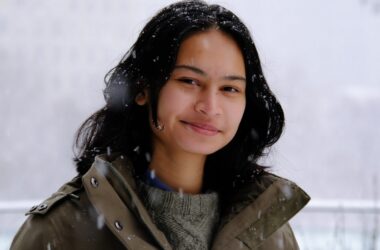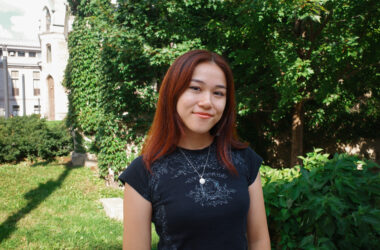Some of my earliest memories are of the way my mother sang me to sleep—soft vowels, careful consonants, and an accent I never thought twice about. Yet, I’ve sat in rooms where that accent—the one that raised me—was mocked. In my high school, classmates exaggerated syllables they didn’t understand. On Netflix, Indian characters were reduced to punchlines. I’ve even heard it from other Indians, trying to distance themselves from what they were told to be ashamed of.
To be Indian means constantly defending the food that nurtured me, the accent that slips through when I reach for words I didn’t grow up with, the jewelry called too ornate, the “dots” on our foreheads called too strange.
We come from civilizations that shaped history, speaking millennia-old languages, from the world’s largest democracy—yet all of it is reduced to the way we slip over our “r’s” or pronounce our “t’s.”
In classrooms of this liberal university, I watch Indian professors—brilliant minds, experts in their fields—pause when a student asks them to repeat themselves. I hear whispers that their accent is too hard to follow. I sit quietly, but inside, I mourn. These are people with stories, with wisdom, with legacies—and yet they’re reduced, ignored, sidelined, all because they do not speak with the ease of colonial familiarity.
As I scroll through Instagram, my eye catches pages like 6ixBuzz posting about how Indians are “filling up” Canada—as if our presence is some kind of infestation. I see the comments flood in. They joke about how employees at Tim Hortons might mess up an order, as if making mistakes is something uniquely Indian. It’s racism, thinly veiled as humour, and it’s everywhere.
As I sit and watch all of this unfold, I try to find solace in solidarity. But when I look around, I see something far more painful: My own Indian friends laughing along. I watch them soften their names and smooth out their accents, trying to rinse off the weight of being Indian, all while their roommates mimic the accent we once heard at dinner tables, in lullabies, and in bedtime stories.
There was a time, early in my teens, when I did the same. I attempted to be more “Western,” hoping I’d fit in where characters like Raj from The Big Bang Theory were left out. Then, I met Colonel Amarjit Singh Rattan, my dad’s childhood friend’s father. With a sparkle in his eye and a grin that never left his face, he eagerly showed me how he tied his pagri (turban)—each fold deliberate, each movement filled with pride.
I didn’t yet understand how someone could carry their identity so comfortably. Curious—and a little naïve—I asked him how he spoke English so well. He answered with no hesitation. He spoke of growing up in colonial India—where speaking English incorrectly meant harsh punishment, and fluency wasn’t a choice, but an act of survival. It was the language of power and punishment. It was a story I hadn’t even considered. He had fought for India in the 1962 and 1965 wars, and he stood before me with the quiet dignity of someone who had nothing left to prove.
Nearly a decade has passed since I met him, yet the lesson he unknowingly left with me stays close. I understand now: The cost of learning this language, the price of getting it wrong, the dignity required to carry an identity that colonial rule, the media, and even our peers have tried to chip away at. In him, I saw what it meant to be proud of who you are in a world that keeps asking you to be something else.
So I step out of the house wearing my jhumke with my Canadian sweater—an everyday rebellion stitched together in gold and fleece. I’m ready to correct anyone who mispronounces my name. I’m prepared to take the social hit for not laughing along when peers make racist “jokes.”
There is something profoundly lonely about loving a language, a cadence, an accent that the world keeps telling you to let go of. And yet, I hold onto it tightly. Because in that voice—in those “r’s” and “t’s”—live the people I love. And I will not let the world laugh them away.









